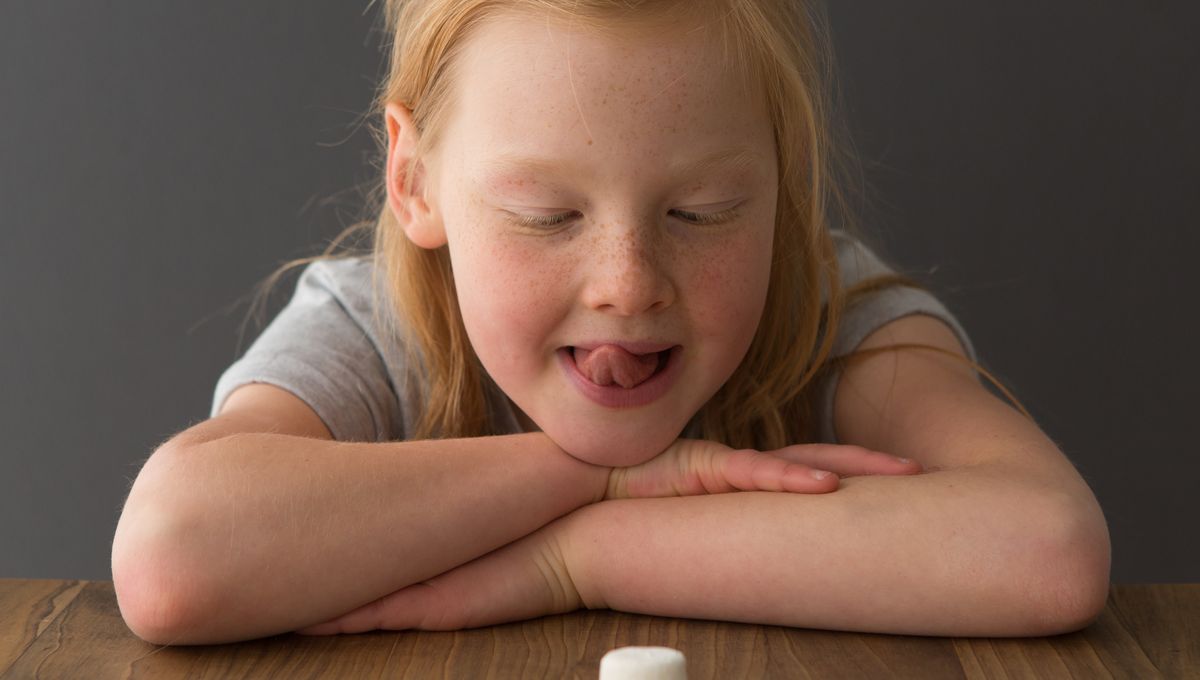
When children take the marshmallow test to see if they can delay gratification, having a partner who promises to go the distance helps them do better. In some ways, the experiment replicates buddy systems used to fight addiction, suggesting these would also work for young children, even when the buddy is an online stranger.
The marshmallow test involves an experimenter placing a marshmallow or other treat in front of a child before leaving the room. The child is told that if the marshmallow is still there when the experimenter returns, they would get two treats. Follow-ups years later found that the children who “passed”, by holding out long enough to get the extra reward, had more successful lives by many measures.
This was originally interpreted as evidence that being able to delay gratification correlates with success. That interpretation has more recently been challenged, on the basis that many children who “failed” came from backgrounds that would give them less reason to trust adult promises. Their subsequent lives may therefore have reflected the environment in which they were raised, not any personal qualities.
Subsequent efforts to broaden the focus of the test have taken into account that when people need to delay gratification, they’re often not doing it alone.
In the latest version of the test, the experiment was done with children aged 5 to 6 years old in their own homes, with the treat selected by parents to match the child’s preferences. Participants were also told they would only receive the better treat if another child also delayed gratification under the same circumstances. An allegedly malfunctioning Zoom link allowed them to see the other child, but not interact with them.
Participants were shown a video of the child they were supposedly paired with, who either promised that they would not eat the treat, potentially allowing both to gain the greater reward, or expressed uncertainty.
When one child promised they would hold out, the other child waited longer before eating the treat than if their partner in the exercise said they were unsure. It also made younger children more likely to last the whole time, although for older members of the sample, the difference was not statistically significant.
As social animals, humans often face challenges in groups, or at least pairs. The study notes, “Humans are an exceptionally cooperative species. Our cooperative skills facilitate frequent and peaceful interaction with strangers, the co-construction of culture and technology, as well as countless scientific and artistic endeavors.”
Yet studies of our behavior often create artificial scenarios where the subjects’ responses are considered in isolation, or with competitors in games. Finding ways to maximize the benefits of peer support might be a more productive line of research, but one that is relatively neglected.
The authors note that cooperation and delay of gratification often go together. “For example, in order for two colleagues to write a joint report, they must coordinate their efforts over time, during which they must also avoid short-term temptations such as social media, watching a movie, etc. They must both self-maintain these behaviors—coordination and delay of gratification—in order to reap the professional rewards associated with their cooperation.”
Those children who leverage peers’ confidence to do better themselves may be at least as well equipped to thrive in the modern world as those who can pass the test under their own steam.
However, there is another interpretation of the results that the paper doesn’t discuss. If the participants hear in the video that the child they are paired with thinks they might eat their treat, which would mean the participant would gain no benefit from delaying gratification, eating their treat becomes the rational choice.
Another outcome of the study is that peer influence worked even online. This is consistent with some previous studies, but contradicts others that indicate differences with face-to-face interactions.
Previous versions of the test by the same team indicate that the knowledge that someone else is counting on you to do your bit works even on children of this age, compared to taking the test alone. Nevertheless, it seems that having a promise from the child someone is paired with counts for something.
Another version of the test showed children were more likely to avoid eating the marshmallow when they knew teachers or friends would learn that they did.
The study is published in Royal Society Open Science.
Source Link: Can Children Help Each Other Pass The Famous Marshmallow Test?